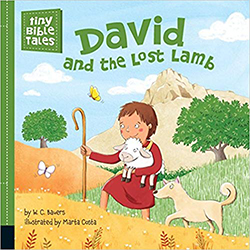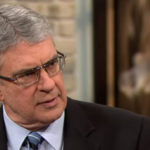ABILENE—An Old Testament scholar who grew up in a bilingual and bicultural home challenged a Hardin-Simmons University audience to view familiar Bible stories through a new lens—by seeing its characters as immigrants.
“The history of humanity is the history of migration,” said M. Daniel Carroll R. (Rodas), the Blanchard Professor of Old Testament in the Graduate School of Wheaton College.
He delivered the 18th annual T.B. Maston Lectures in Christian Ethics at HSU’s Logsdon Seminary March 5-6. The lecture series seeks to honor Maston’s legacy as a pioneering Baptist professor of Christian ethics.
Carroll, the son of a Guatemalan mother and an American father, grew up in Houston and spent many summers of his youth in Guatemala.
Strangers in foreign lands
He retold the stories of Joseph, the Israelites, Ruth and Daniel as the accounts of immigrants in foreign lands.
Joseph faced discrimination as an immigrant in Egypt, Carroll noted. When Joseph was falsely accused of assaulting Potiphar’s wife, the authorities believed the Egyptian woman over the immigrant.
In Exodus, the Israelites were persecuted for their nationality, he observed. Because of their numbers, they were viewed as a national security threat. Pharaoh subjected the Israelites to harsh labor and even killed their children. He commanded them to make bricks without supplying them with straw.
The Egyptians needed the Israelite labor but did not want them as people, Carroll observed. Similarly, United States citizens rely on immigrant labor for agriculture, construction, and childcare, but they try to keep immigrants out of the country, he said.
As a Moabite, Ruth was an immigrant to Israel. Carroll suggested Ruth’s own mother-in-law, Naomi, may have been ashamed of her, because she did not acknowledge Ruth’s presence or her help.
Sign up for our weekly edition and get all our headlines in your inbox on Thursdays
The young Israelite Daniel—who later became a prophet—was forced to migrate to Babylon, the kingdom that took everything from his people, Carroll said.
Despite hardships, each of these immigrants in Scripture overcame oppression, he said. Joseph became second in command of all Egypt. The Israelites left Egypt for the Promised Land. Ruth was in the family line of Jesus, and Daniel was made ruler over Babylon.
Examples of virtue
Reading the Bible through the eyes of an immigrant develops the reader’s moral reasoning, Carroll explained.
The immigrants in the Bible exemplified virtues of courage, patience, compassion and loyalty, he said, calling on the church to demonstrate the same values to today’s immigrants.
God “defends the cause of the fatherless and the widow, and loves the foreigner residing among you, giving them food and clothing,” he said, quoting from Deuteronomy 10. “And you are to love those who are foreigners, for you yourselves were foreigners in Egypt.”
Carroll was an Old Testament professor 13 years at an interdenominational seminary in Guatemala City, where he continues to serve as adjunct professor. As distinguished professor of Old Testament at Denver Seminary, he founded a Spanish-language training program.














We seek to connect God’s story and God’s people around the world. To learn more about God’s story, click here.
Send comments and feedback to Eric Black, our editor. For comments to be published, please specify “letter to the editor.” Maximum length for publication is 300 words.